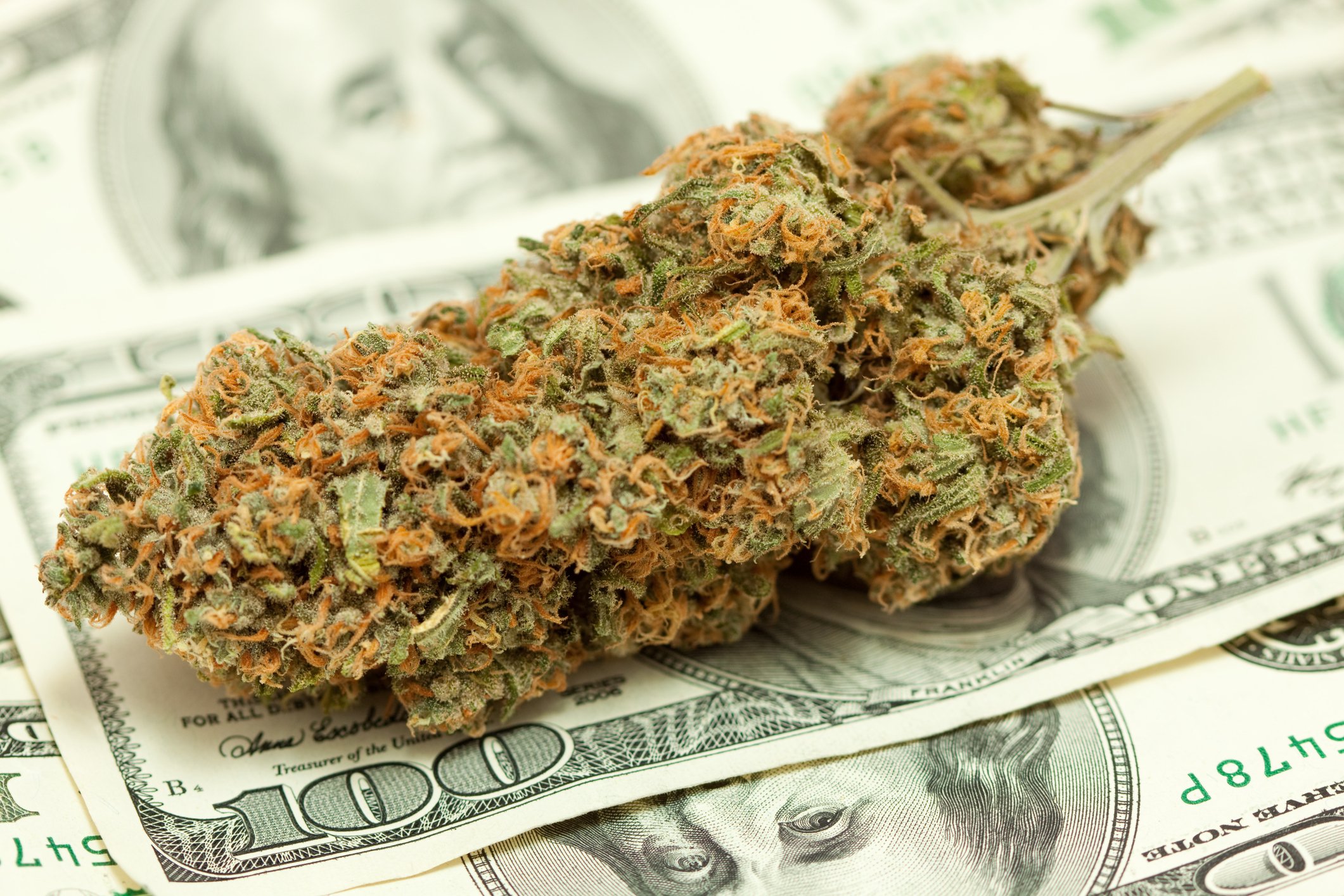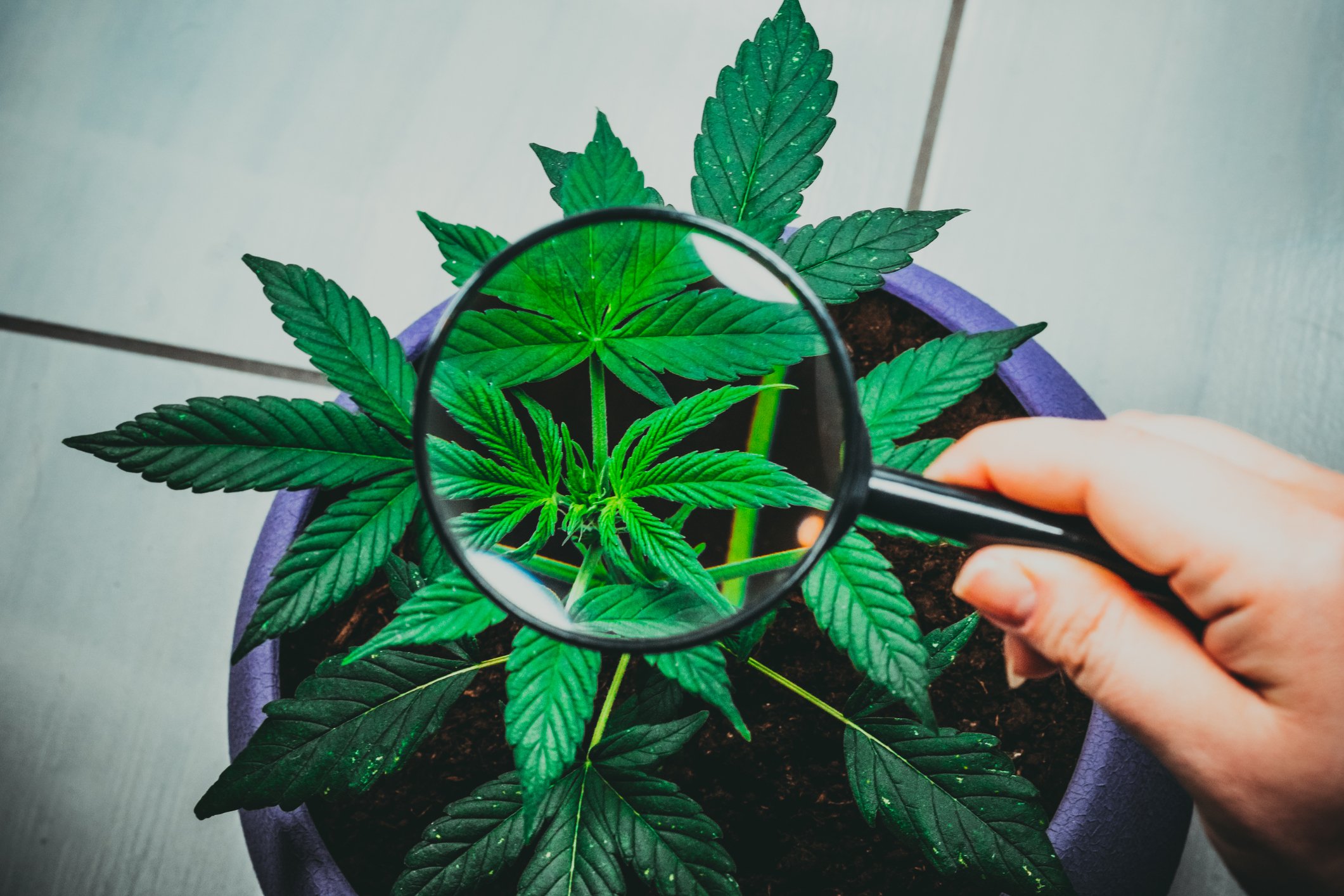With a one-page memo, Attorney General Jeff Sessions potentially turned the growing U.S. marijuana market upside down.
On Thursday, Sessions sent a memo to federal prosecutors in the Department of Justice that overturned the policy in place during the Obama Administration that kept federal law-enforcement officials from interfering in states that had legalized marijuana. This change came only days after California began legally allowing use of recreational marijuana.
What does this latest move mean for the cannabis industry? It's complicated.

Image source: Getty Images.
Hammer time?
To understand what's changed, we need to first look back to August 2013. That's when Deputy Attorney General James Cole wrote a memo to all U.S. attorneys with new guidance on enforcing federal marijuana laws. The "Cole memo" advised federal attorneys that they should largely defer to state and local authorities when it came to prosecuting marijuana-related activities.
This approach kept the federal government out of the U.S. marijuana industry's hair for the most part. Meanwhile, more states legalized marijuana for medical and recreational use. And the cannabis market took off in those states.
Now, however, there's a different way of handling things. Sessions' memo noted existing federal law prohibiting the possession and sale of marijuana, stating that "these statutes reflect Congress' determination that marijuana is a dangerous drug and that marijuana activity is a serious crime." The Attorney General officially rescinded, effective immediately, previous guidance regarding marijuana enforcement, including the Cole memo and other policies and memos issued during the Obama Administration.
Practically speaking, Sessions opened the door for U.S. attorneys across the country to prosecute any person who possesses or sells marijuana. Prosecution could technically even include suppliers of medical marijuana.
This move isn't really surprising. When then-President-elect Trump selected Jeff Sessions to be Attorney General in November 2016, it was viewed as a worst-case scenario for the U.S. marijuana industry. Sessions opposed marijuana legalization as a U.S. senator, once even saying that "good people don't smoke marijuana." Even though many hoped that he would let states do their own thing, fears persisted that he wouldn't. It's now a real possibility that the hammer could come down.

Image source: Getty Images.
Marijuana mayhem
My prediction, though, is that what will really happen is marijuana mayhem -- or if you prefer, cannabis chaos. Note that Sessions left prosecution to the discretion of U.S. attorneys. He wrote that federal prosecutors should "weigh all relevant considerations, including federal law enforcement priorities set by the Attorney General, the seriousness of the crime, the deterrent effect of criminal prosecution, and the cumulative impact of particular crimes on the community."
As of now, Sessions hasn't made enforcement of federal anti-marijuana laws a high priority. That means U.S. attorneys can choose to allow the status quo to continue in their respective states.
I suspect that medical marijuana will be relatively safe. There's a Congressional amendment in effect that prevents the Justice Department from interfering in states where use of medical marijuana is allowed. Department of Justice officials said they would adhere to this amendment, according to the Associated Press. However, they refused to totally rule out the possibility of prosecutions related to the sale or use of medical marijuana.
It could be a different story in states that have legalized recreational marijuana. I wouldn't be surprised if there was subtle, and potentially overt, pressure for some federal prosecutors to make examples of some businesses selling marijuana in states where recreational marijuana laws contradict federal laws.
On the other hand, expect fierce resistance to Sessions' latest move. Even members of his own party are ready to fight back. U.S. Senator Cory Gardner (R-Colo.) tweeted that he was "prepared to take all steps necessary, including holding DOJ nominees, until the Attorney General lives up to the commitment he made to me prior to his confirmation."
Although Gardner has personally been opposed to marijuana legalization, he represents a state where the voters opted to allow legal use of both medical and recreational marijuana. If he and other senators from states that have legalized marijuana join forces to block DOJ nominees, it could put a lot of pressure on Sessions to back down. There's no guarantee that the Attorney General will do so, though. Like I said, I expect marijuana mayhem.
Investing words of wisdom
In my view, prospects for the U.S. cannabis industry are more up in the air than up in smoke. However, for investors, my words of wisdom are to stay away from stocks dependent on the U.S. market. I had the same opinion before Jeff Sessions' memo went out.
If you're looking to invest in marijuana stocks, check out top Canadian marijuana growers like Canopy Growth (TWMJF +0.46%) and Aurora Cannabis (ACBFF 3.45%). Alternatively, you could buy stocks of cannabinoid-focused biotechs, like GW Pharmaceuticals (GWPH +0.00%) and Insys Pharmaceuticals (INSY +0.00%).
Canada has already legalized medical marijuana nationwide and is in the process of doing so for recreational use of the drug. That makes stocks such as Canopy Growth and Aurora Cannabis much safer plays than U.S. marijuana stocks. As for biotechs like GW and Insys, they must follow Food and Drug Administration regulations, and won't be impacted by the change in federal policy.
It's entirely possible that Sessions' memo will end up being much ado about nothing. But when it comes to investing hard-earned dollars, I wouldn't take the chance that crackdowns won't come. Because they might.








